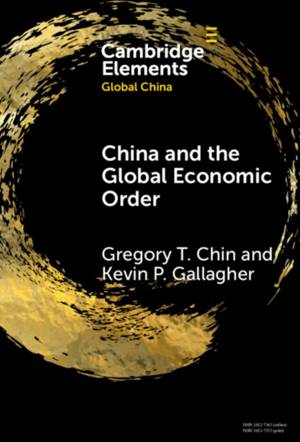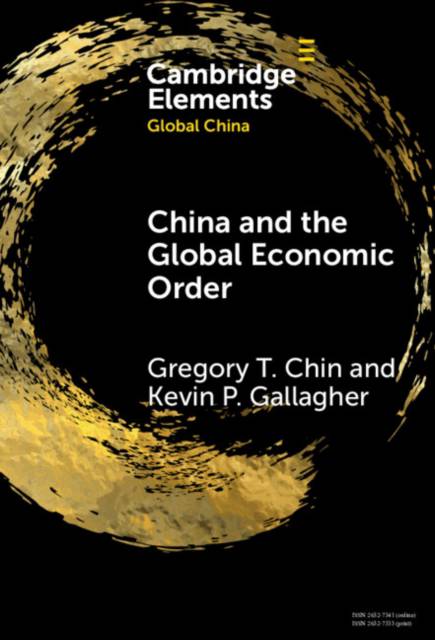
- Afhalen na 1 uur in een winkel met voorraad
- Gratis thuislevering in België vanaf € 30
- Ruim aanbod met 7 miljoen producten
- Afhalen na 1 uur in een winkel met voorraad
- Gratis thuislevering in België vanaf € 30
- Ruim aanbod met 7 miljoen producten
Zoeken
€ 112,95
+ 225 punten
Uitvoering
Omschrijving
This Element examines China's evolving relations with the Bretton Woods institutions (BWIs), specifically the International Monetary Fund and the World Bank Group from the 1980s through 2025. Using a combination of new qualitative findings and quantitative datasets, the authors observe that China has taken an evolving approach to the BWIs in order to achieve its multiple agendas, acting largely as a 'rule-taker' during its first two decades as a member, but, over time, also becoming a 'rule-shaker' inside the BWIs, and ultimately a new 'rule-maker' outside of the BWIs. The analysis highlights China's exercise of 'two-way countervailing power' with one foot inside the BWIs, and another outside, and pushing for changes in both directions. China's interventions have resulted in BWs reforms and the gradual transformation of the global order, while also generating counter-reactions especially from the United States. This title is also available as Open Access on Cambridge Core.
Specificaties
Betrokkenen
- Auteur(s):
- Uitgeverij:
Inhoud
- Aantal bladzijden:
- 90
- Taal:
- Engels
- Reeks:
Eigenschappen
- Productcode (EAN):
- 9781009509084
- Verschijningsdatum:
- 5/02/2026
- Uitvoering:
- Hardcover
- Formaat:
- Genaaid
- Afmetingen:
- 152 mm x 229 mm
- Gewicht:
- 290 g

Alleen bij Standaard Boekhandel
+ 225 punten op je klantenkaart van Standaard Boekhandel
Beoordelingen
We publiceren alleen reviews die voldoen aan de voorwaarden voor reviews. Bekijk onze voorwaarden voor reviews.








